News
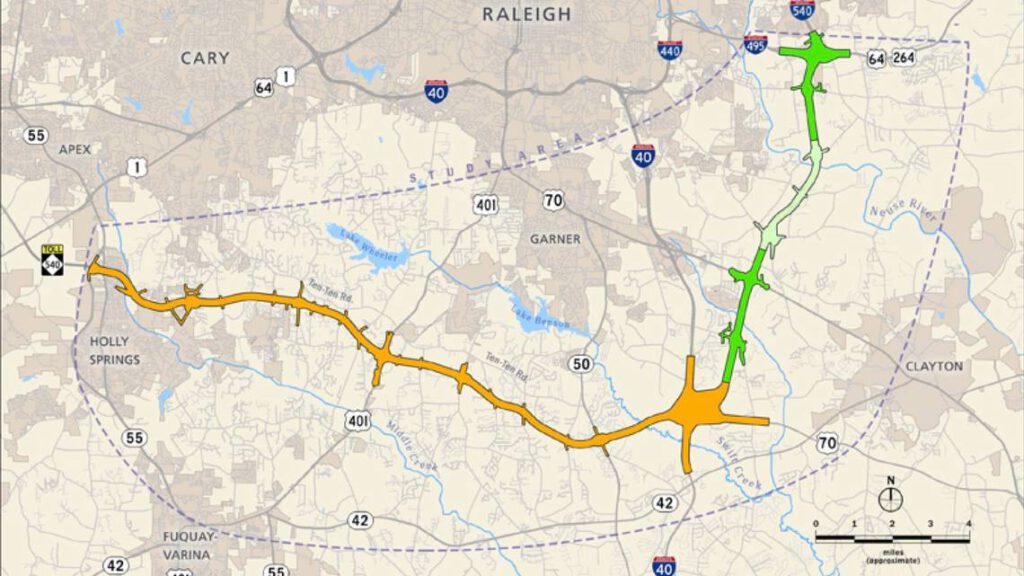
Press Release: June 25, 2018
Conservation Groups File New Claims against NCDOT, FHWA, NMFS over Deficient Reviews of $2.2 Billion 540 Toll Road
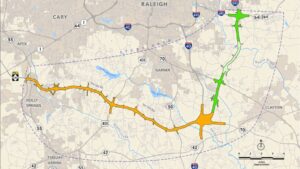
RALEIGH, N.C – On behalf of Sound Rivers, the Center for Biological Diversity and Clean Air Carolina, the Southern Environmental Law Center filed a slew of new claims in their lawsuit challenging the $2.2 billion 540 toll highway. In these new claims, the conservation groups challenge the agencies’ failure to adequately study and disclose the impact of the massive toll highway—including how construction of a new-location, twenty-seven mile toll road will contribute to climate changing emissions and how the road will affect low-income and minority communities. The conservation groups also challenge the agencies’ failure to adequately consider alternatives to Complete 540 that would be less destructive and more cost effective.
The proposed highway would pave over 70 acres of wetlands, destroy more than 55,000 feet of streams, and cut through the area’s few remaining green spaces. By encouraging unplanned growth to sprawl out of Raleigh and into Southeast Wake County, the toll highway would also have devastating impacts on air quality, would increase impervious surfaces, and would contribute to the rise in dangerous greenhouse gas emissions. At the same time, the project, which would require a costly toll, would be unaffordable for many segments of the population, meaning that low income communities would suffer all the costs of the project without getting any benefit.
“It is disappointing to see the Cooper administration move forward with this massively expensive project that will devastate one of the most crucial habitats in the Neuse River watershed,” said Upper Neuse Riverkeeper Matthew Starr. “This highway would be one of the most destructive in North Carolina’s history—and yet it provides little benefit to the public.”
The conservation groups had urged Governor Cooper and Secretary of Transportation, Jim Trogdon, to pause the expensive, outdated loop highway concept and pursue other lower-cost, less-damaging options.
“Last September, Governor Cooper signed a pledge to cut North Carolina’s greenhouse gas emissions to meet the targets of the Paris Accord,” said Kym Hunter, an attorney with the Southern Environmental Law Center. “Unfortunately, this $2.2 billion NCDOT toll project undermines the governor’s commitment and locks residents into an outdated product of the past: expensive loop highways around cities that lead to sprawl, increased driving, and contribute to a low quality of life. Complete 540 is the epitome of bad policy.”
The claims, which were filed in the United States District Court for the Eastern District of North Carolina, add the North Carolina Department of Transportation, the Federal Highway Administration, and the National Marine Fisheries Service as Defendants to the lawsuit.
“The waters downstream from this ill-conceived highway are the last streams in Wake County that are still clean enough to support sensitive aquatic wildlife like the endangered dwarf wedgemussel and the Neuse River waterdog,” said Perrin de Jong, staff attorney for the Center for Biological Diversity. “What is at stake in this case is whether our state’s capitol can coexist with vulnerable wildlife, or if only pavement and smog will be allowed to remain.”
The groups have put forward an alternative solution, ACCESS2040, which would rely on upgrading existing roads and innovative transportation improvements to reduce congestion throughout the Complete 540 project area at a much lower cost. This alternative solution would cost just $293.7 million above already-planned improvements, compared to the $2.2 billion price tag accompanying the 540 extension proposal. Unlike the 540 extension, ACCESS2040 would be open to all users—not just those willing and able to pay a pricey toll. ACCESS2040 would also cause significantly less environmental destruction.
“We are sad to see NCDOT pursue yet another unnecessary highway project that will exacerbate climate emissions and poor air quality in our state,” said June Blotnick, executive director of Clean Air Carolina. “Rather than investing $2.2 billion in highway infrastructure for car owners who can afford to pay tolls, NCDOT should take a careful look at expanding public transportation, and fixing up existing roads.”
The conservation groups point to the economic development opportunities ignited when cities turn their emphasis to fostering walkable, bikeable, vibrant communities rather than sprawl. Large companies like Amazon and Apple have been clear that they value these qualities as they search for a new headquarters.
Related News
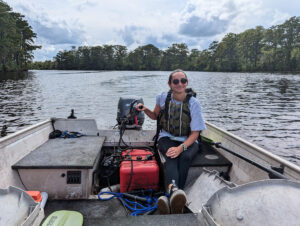
Riverkeeper monitoring Tar-Pamlico Water Trail
July 25th 2024

Rain ramps up trash-trap cleanouts
July 25th 2024

Riverkeeper, intern take on emergency trash trap cleanout
July 25th 2024

Tar-Pam Riverkeeper investigates Cub Creek turbidity
July 25th 2024
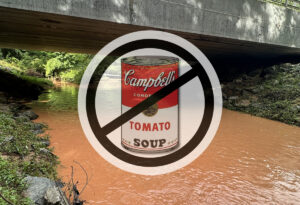
Heavy rains lead to sky-high turbidity on Lick Creek
July 25th 2024

Riverkeeper: What goes up, must come down
July 18th 2024
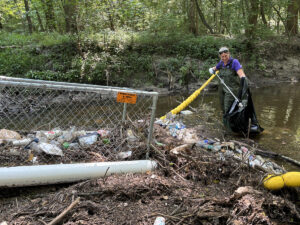
Greenville’s trash trap gets emergency cleanout
July 18th 2024

Sound Rivers gets close up of cyanobacteria
July 18th 2024

